Volume 51.03 Autumn 2022
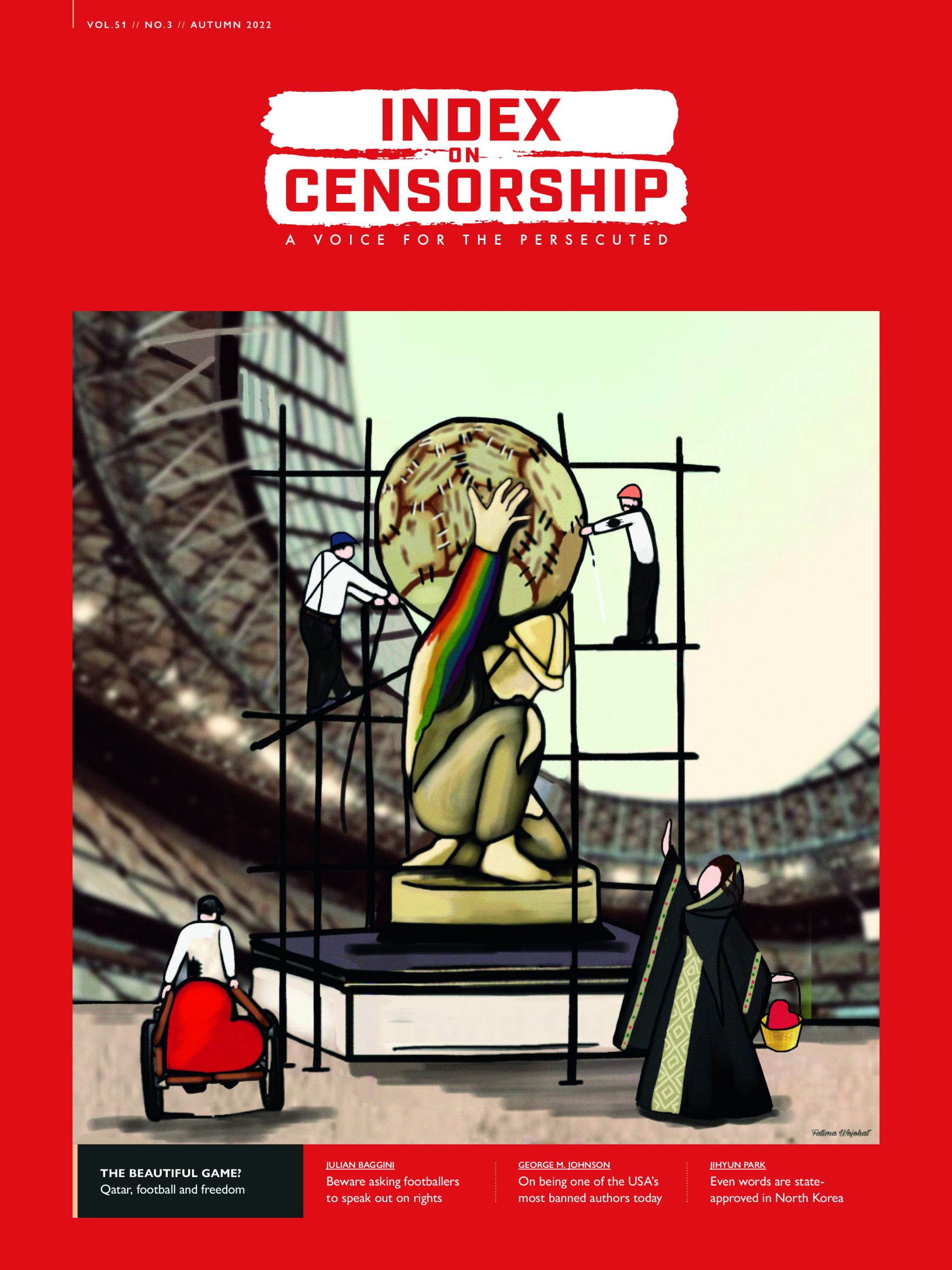

Volume 51.03 Autumn 2022
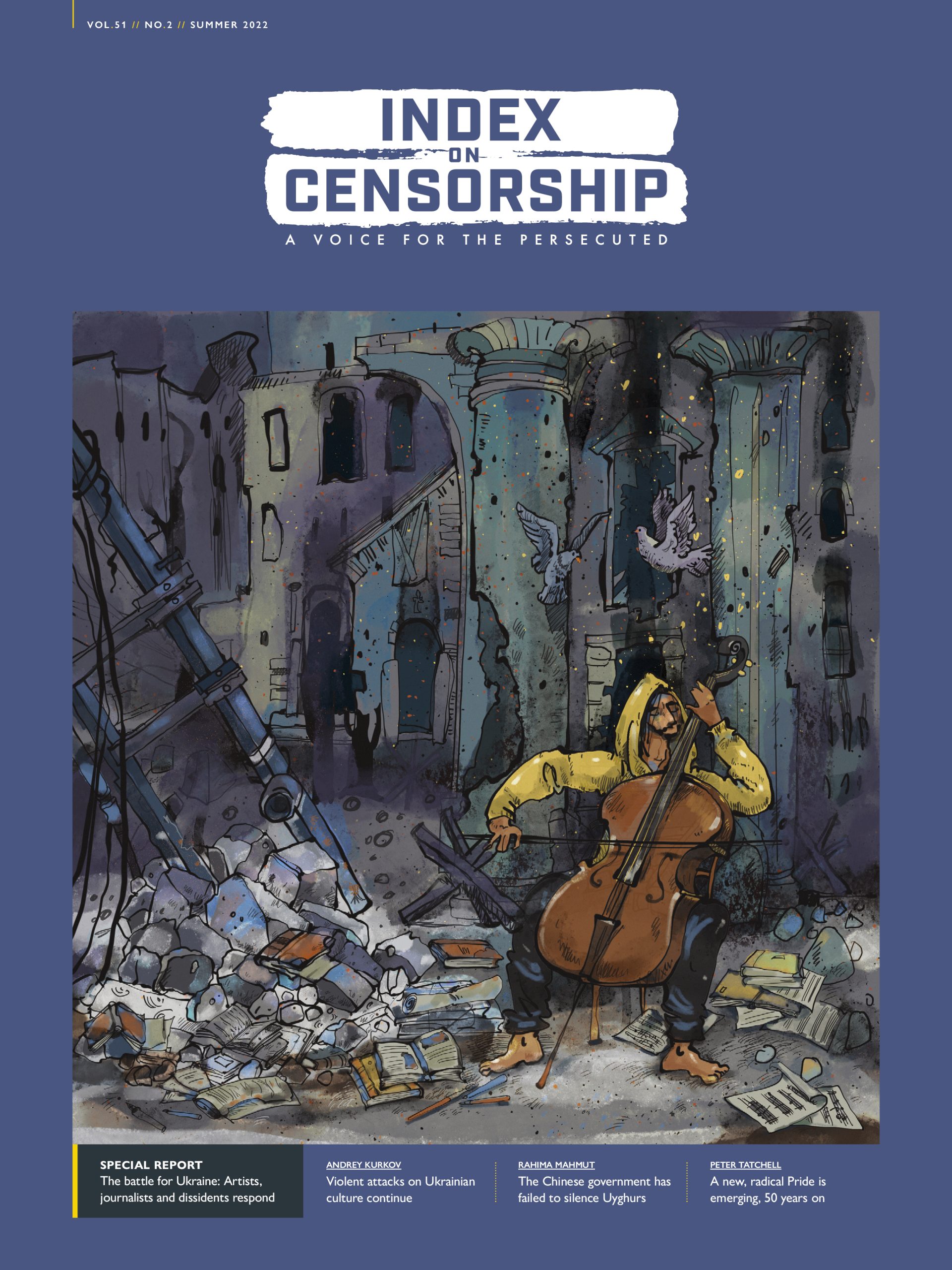
Volume 51.02 Summer 2022

Volume 51.01 Spring 2022
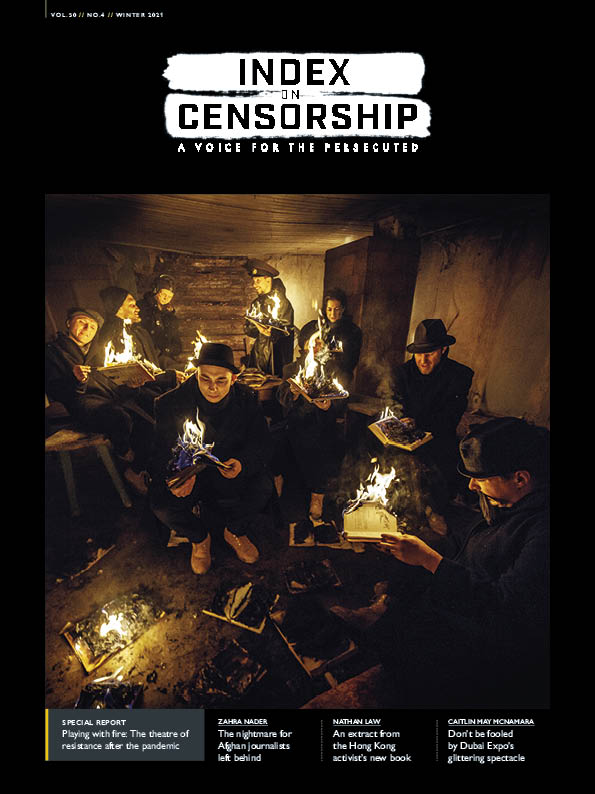
Volume 50.03 Autumn 2021
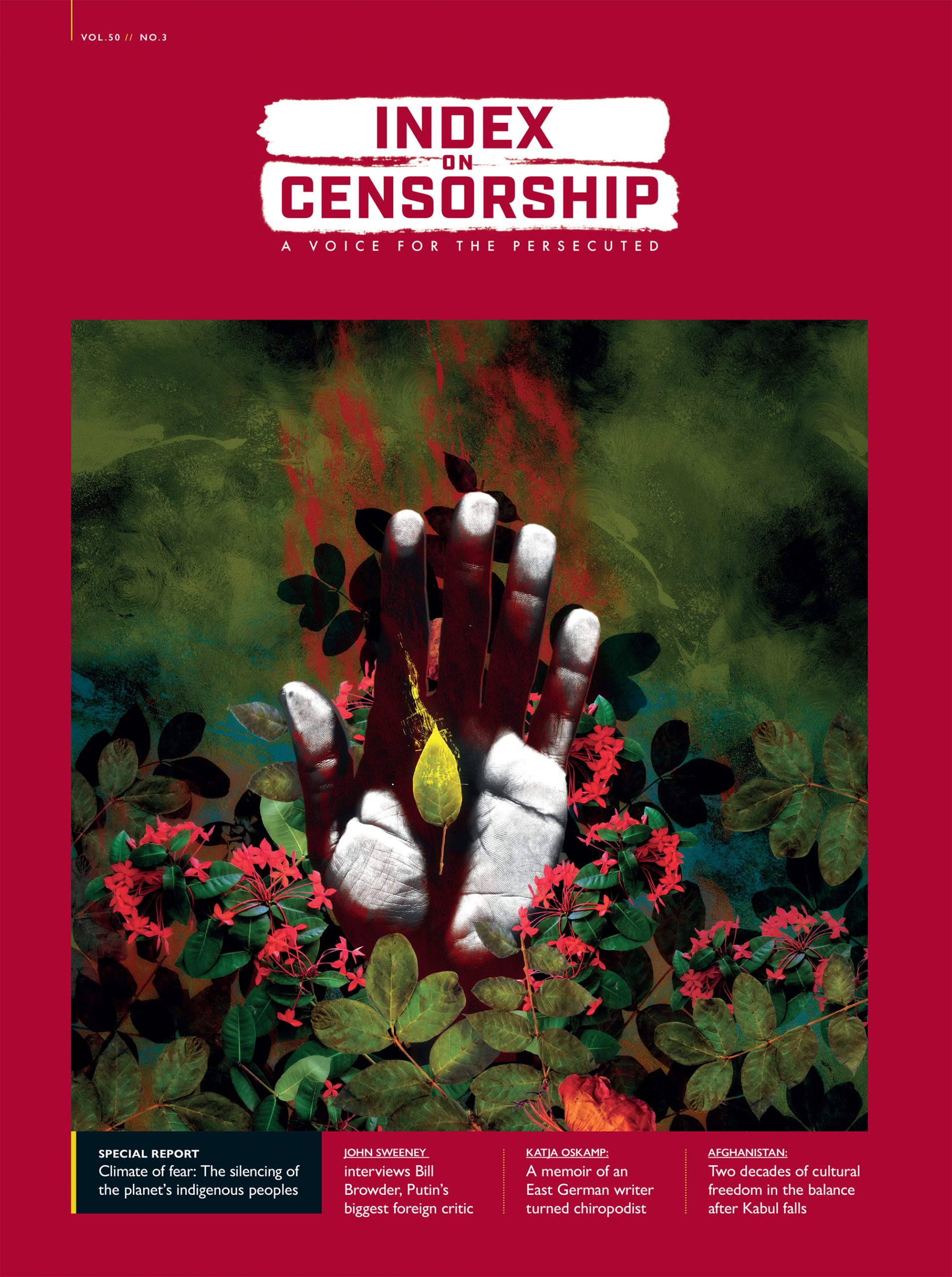
Volume 50.03 Autumn 2021

Volume 50.02 Summer 2021
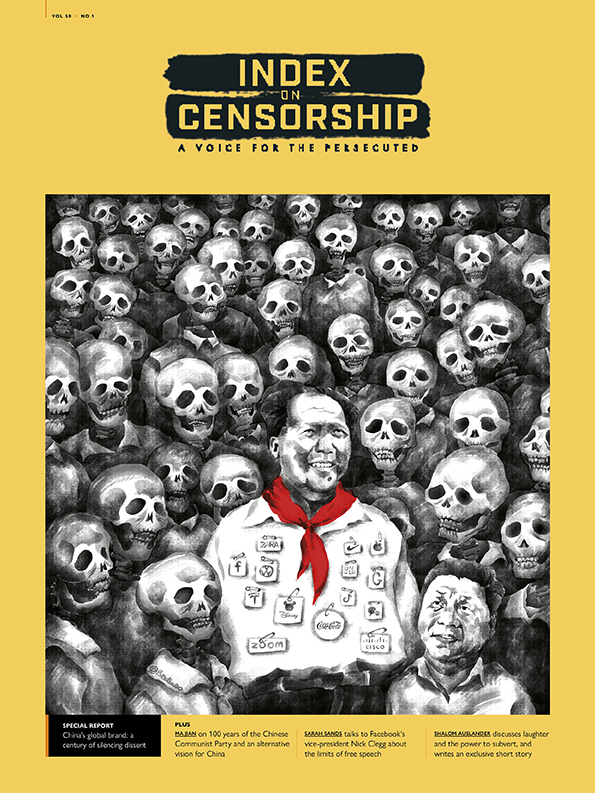
Volume 50.01 Spring 2021
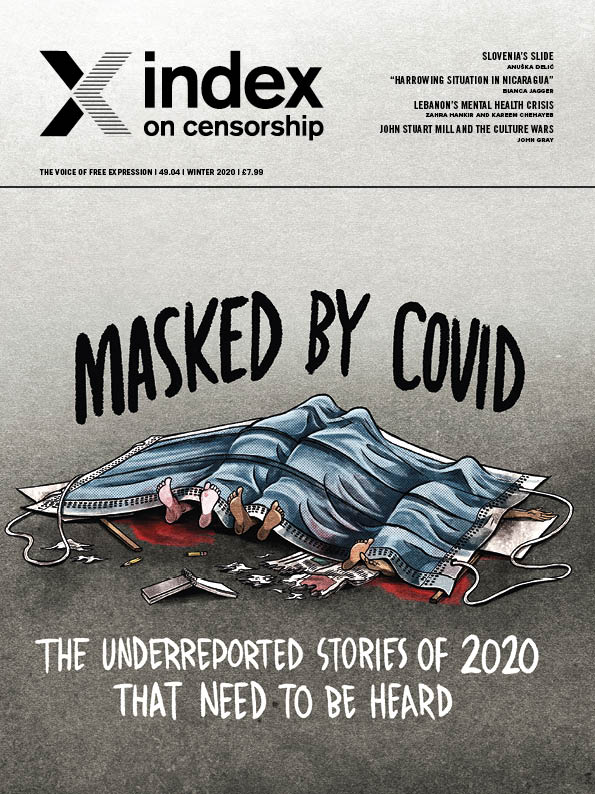
Volume 49.03 Autumn 2020
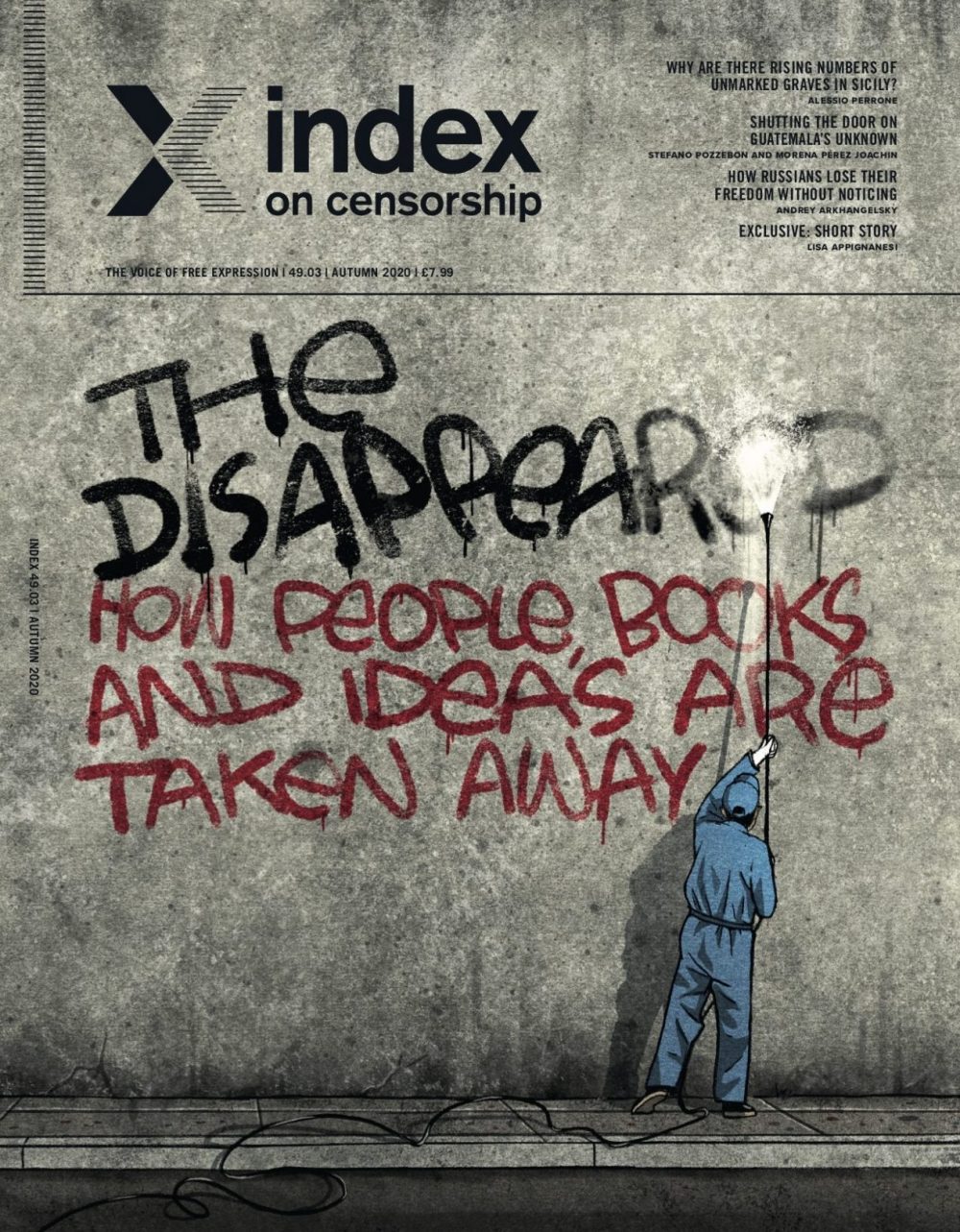
Volume 49.03 Autumn 2020
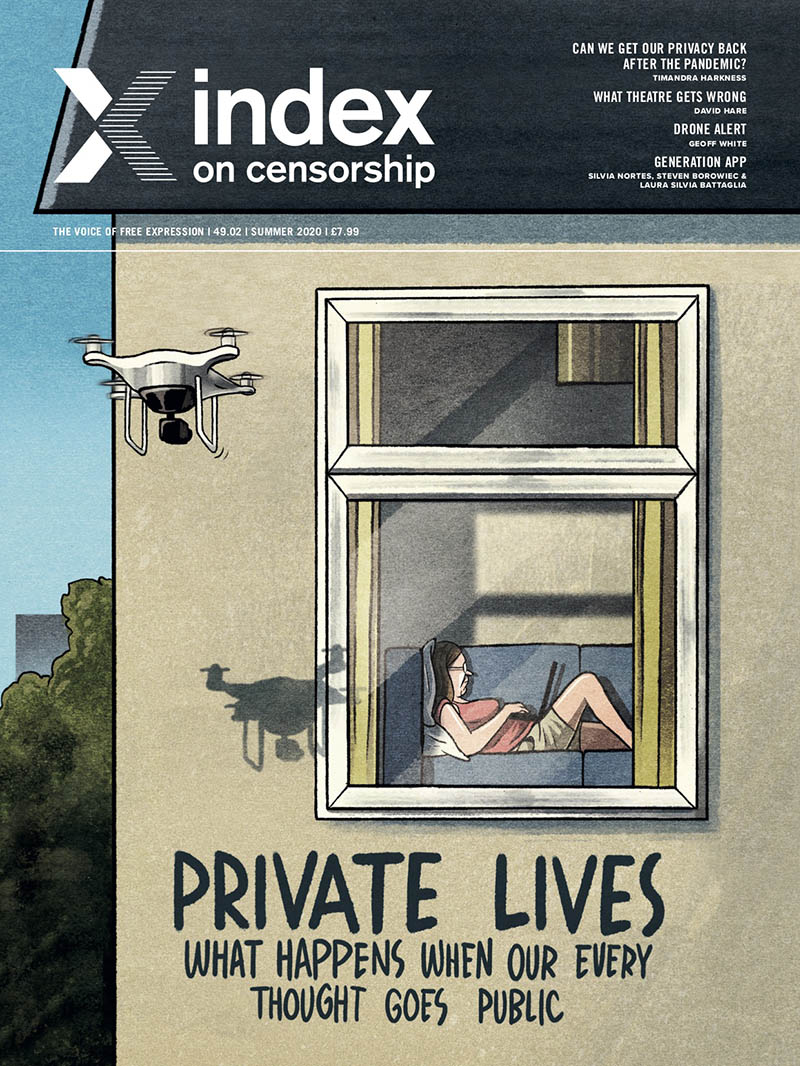
ust how much of our privacy might we give away – accidentally, on purpose or through force – in the battle against Covid-19? This is the question we pose in the Index on Censorship summer 2020 magazine. Tech journalist Geoff White looks at how drones are hovering overhead around the world, from China to the UK, to make sure we are abiding by quarantine and physical distancing. Just how up close and personal can they get? Less technical but just as sinister, Issa Sikiti da Silva reports from Uganda on government spies that are doing the same job as the drones, only they seem to be targeting political opposition. Meanwhile, people around the world are being encouraged to download contact tracing apps. That might be ok when the app has safeguarded privacy, but more often than not what is happening to data is not being spelt out, something Indian journalists are worried about in terms of their safety and that of their contacts, as Indian journalist Somak Ghoshal writes. And in the case of Colombia, Stephen Woodman highlights that the apps are easy for hackers to access. But when we’re in the home things don’t seem much better, as Adam Aiken argues in his article looking at the privacy issues that blight Zoom.
Front covers of past issues and contents